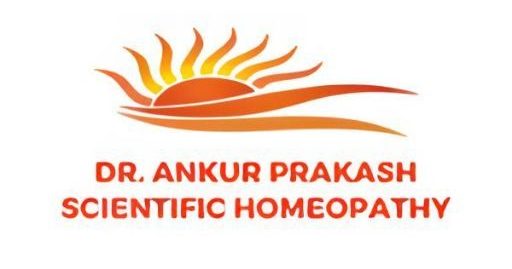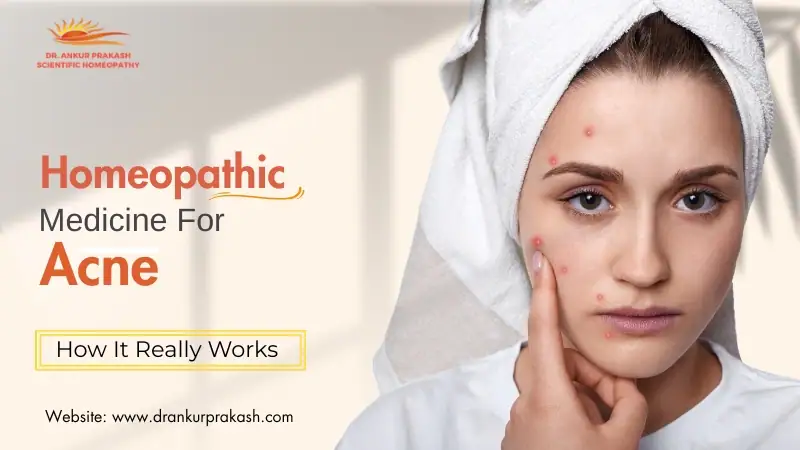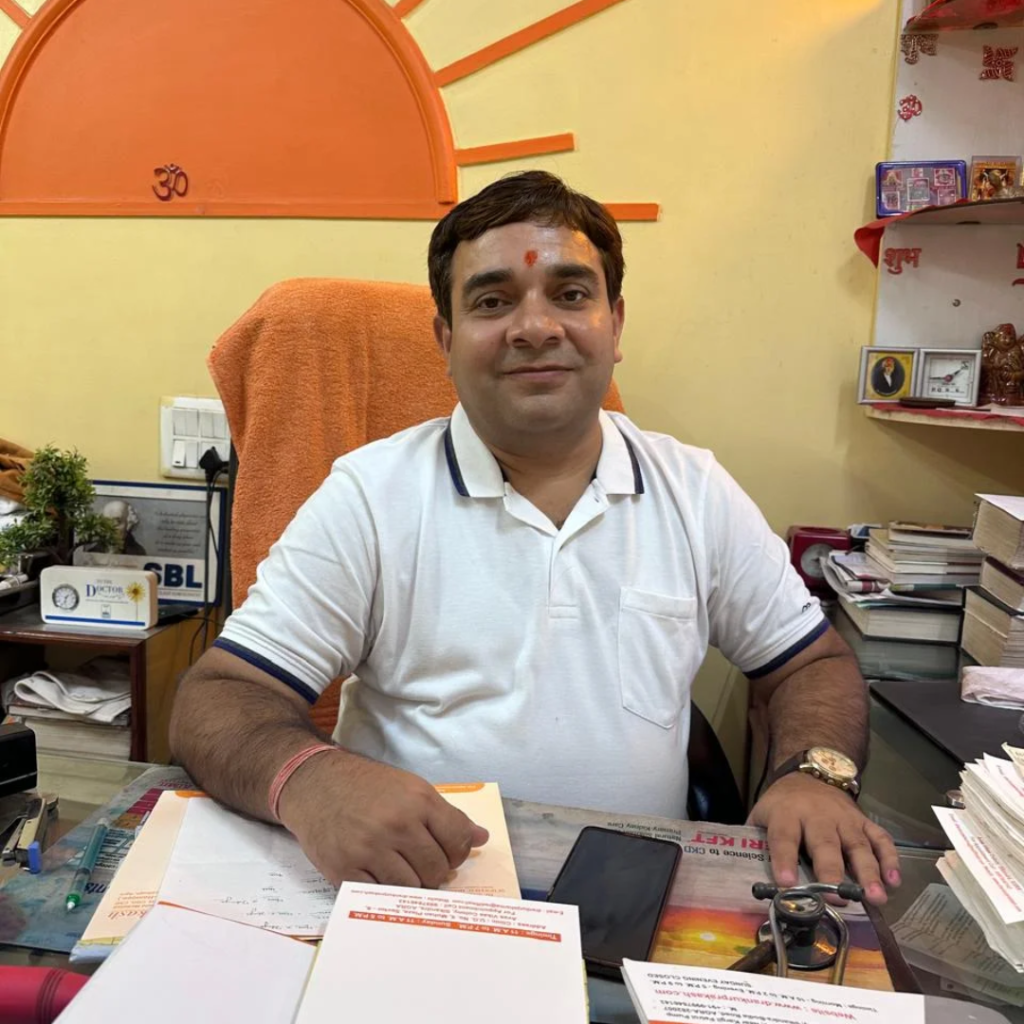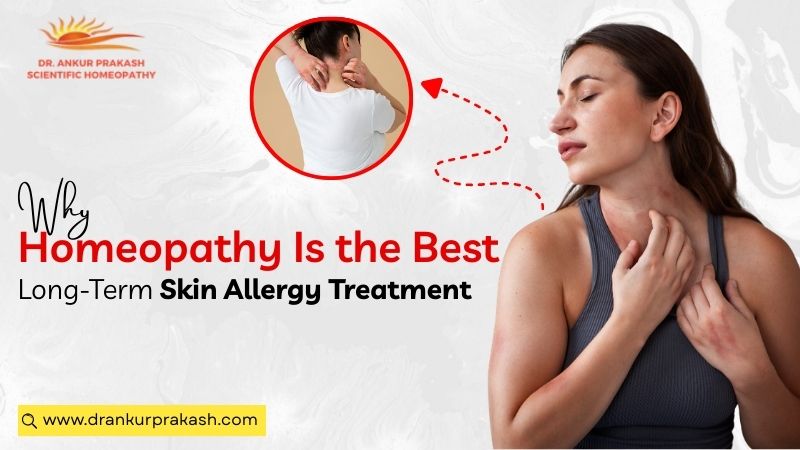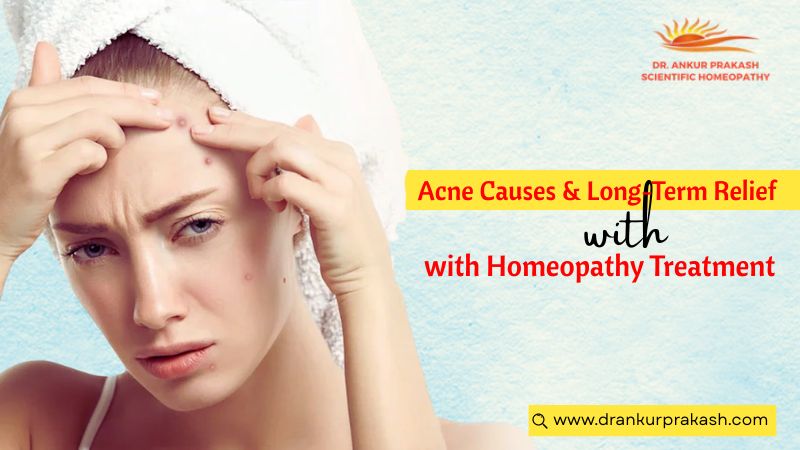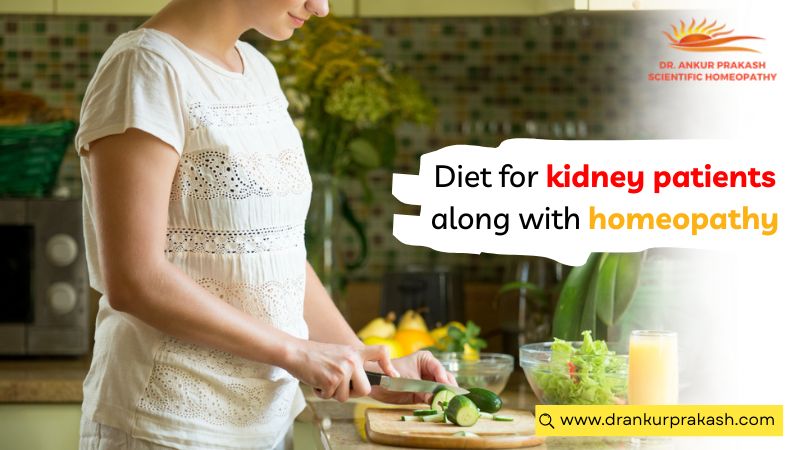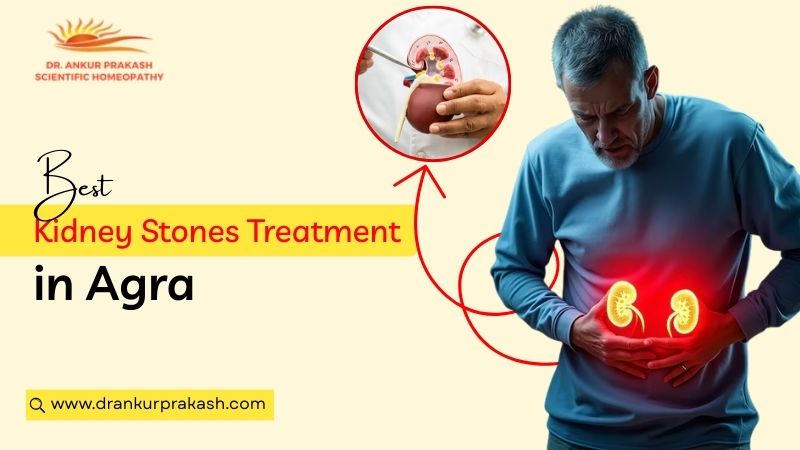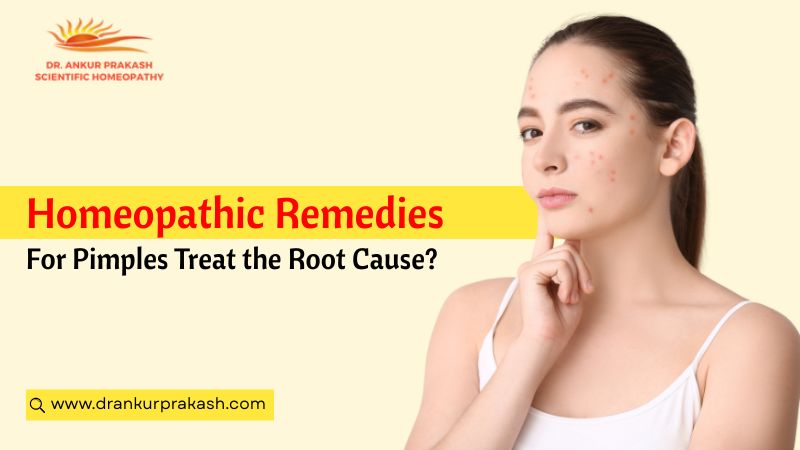Acne is one of the most common skin problems that affect people of all ages, especially teenagers and young adults. It can cause red, inflamed spots on the face, chest, and back, leading to discomfort and low self-confidence. Many people look for safe and gentle ways to treat acne, and Homeopathic Medicine for Acne has become a popular choice because it focuses on treating the root cause, not just the symptoms.
The Homeopathic treatment for acne works by balancing the body’s internal systems, improving digestion, regulating hormones, and strengthening immunity to reduce acne naturally over time without harsh chemicals or side effects.
What is Acne?
Acne is a common skin condition that occurs when hair follicles get clogged with oil, dead skin cells, and bacteria. It usually appears as pimples, blackheads, whiteheads, or cysts, mostly on the face, chest, and back. Acne commonly affects teenagers and young adults due to hormonal changes but can occur at any age. If left untreated, it may lead to skin scarring and low self-confidence. Proper care and treatment are important to manage acne effectively.

Types of Acne
Acne is a common skin problem that appears in different forms, depending on the cause and severity. Understanding the type of acne helps in choosing the right treatment method for clear and healthy skin.
1. Comedonal Acne
Comedonal acne includes blackheads and whiteheads. Blackheads are small, dark spots caused by open clogged pores, while whiteheads are small, white bumps caused by closed clogged pores. This type is usually mild and does not cause redness or inflammation but can still affect skin appearance if untreated.
2. Inflammatory Acne
Inflammatory acne occurs when clogged pores become infected with bacteria. It appears as red, swollen pimples that can be painful. These pimples are more noticeable than comedonal acne and often cause discomfort due to inflammation and irritation.
3. Cystic Acne
Cystic acne is a severe type where large, painful lumps filled with pus develop deep under the skin. These cysts can last for weeks and may cause scarring if not treated properly. It requires medical supervision and a gentle yet effective treatment approach.
4. Nodular Acne
Nodular acne consists of hard, solid lumps beneath the skin’s surface. These nodules are usually painful and do not come to a head like regular pimples. They can last for a long time and often need professional treatment to reduce discomfort and prevent scarring.

Symptoms of Acne
Acne can show different symptoms depending on its type and severity. Recognizing these symptoms early helps in seeking the right treatment. Here are the common symptoms of Acne:
- Pimples and Red Bumps
These are the most common signs of acne. Small red or pink bumps appear on the face, chest, or back. They can be tender to touch and sometimes contain pus. Pimples are caused when hair follicles get clogged with oil, dead skin cells, and bacteria, leading to inflammation.
- Blackheads and Whiteheads
Blackheads are small dark spots that form when pores are open and clogged with oil and dead skin cells. Whiteheads are closed clogged pores that appear as small white or flesh-colored bumps. Both types indicate early stages of acne.
- Oily Skin
Excess oil production in the skin, especially in the T-zone (forehead, nose, and chin), is a common symptom. Oily skin can make acne worse by clogging pores and creating an environment for bacteria to grow.
- Painful Cysts or Nodules
Cystic acne and nodular acne are severe forms where deep, painful lumps form under the skin. Cysts are filled with pus, while nodules are hard lumps. They last longer than regular pimples and can be very uncomfortable.
- Skin Redness and Inflammation
Acne often causes redness, swelling, and warmth in affected areas due to inflammation. Inflamed pimples are tender and may be more noticeable on the skin compared to non-inflamed acne.
- Scarring
Severe or untreated acne, especially cysts and nodules, can leave permanent scars or dark spots. Scarring happens when the skin’s tissue is damaged during the healing process, making early treatment important to prevent long-term marks.
Causes of Acne
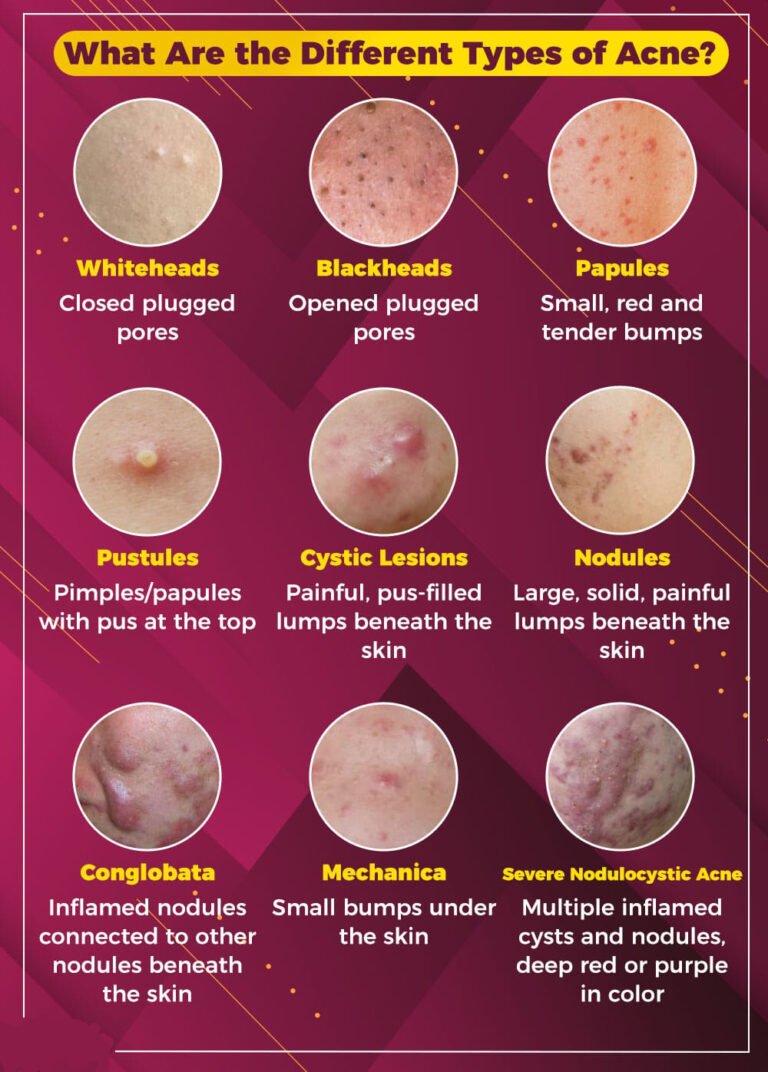
Acne occurs when several factors work together to block pores and cause inflammation. Understanding the main causes helps in preventing and managing this common skin problem effectively.
1. Hormonal Changes
One of the most common causes of Acne is hormonal imbalance. During puberty, menstruation, pregnancy, or conditions like PCOS, hormone levels rise, which increases oil (sebum) production. Excess oil clogs pores, leading to pimples and blackheads.
2. Excess Oil Production
Overactive sebaceous glands produce too much oil, which mixes with dead skin cells. This combination can block hair follicles, creating the perfect environment for Acne to develop.
3. Bacterial Infection
The bacteria Propionibacterium acnes, naturally found on the skin, can multiply inside blocked pores. This leads to inflammation, redness, and painful pimples.
4. Poor Diet and Lifestyle
Diets high in sugar, dairy products, and processed foods may trigger or worsen acne. Unhealthy habits like poor hygiene, lack of sleep, and high stress levels can also contribute to the problem.
5. Environmental Factors
Pollution, high humidity, and exposure to dirt or chemicals can irritate the skin and block pores, encouraging the formation of acne.
Homeopathic Treatment for Acne
Homeopathy offers a natural and gentle approach to treating acne by focusing on the body as a whole rather than just the skin. It helps balance hormones, improve digestion, and strengthen the immune system, which are often underlying causes of acne.
Homeopathic Treatment for Acne involves using carefully selected remedies based on individual symptoms and body type. These medicines reduce inflammation, control oil production, and help the body eliminate toxins, promoting clear and healthy skin over time. Unlike harsh chemical treatments, homeopathy works without side effects, making it a safe option for long-term acne care and overall well-being
Homeopathy Medicine for Acne
Homeopathy Medicine for Acne offers a natural and safe way to treat acne by focusing on the root cause of the problem. Instead of just masking the symptoms, homeopathic treatment helps balance the body’s internal system, improving skin health and reducing acne over time. Here are seven medicines commonly used in Homeopathy Medicine for Acne:
Sulphur – Helps reduce inflammation and itching, especially in oily skin.
Pulsatilla – Good for hormonal acne, especially in young people.
Hepar Sulphuris – Useful for painful, pus-filled acne.
Silicea – Helps clear stubborn acne and improves skin healing.
Natrum Muriaticum – Effective for acne caused by stress or hormonal imbalance.
Calcarea Sulphurica – Treats acne with yellowish discharge and slow healing.
Mercurius Solubilis – Used for acne with excessive sweating and bad odor.
Consult the best homeopathy doctor in India to get the right medicine and proper guidance.
Disclaimer: The results of homeopathic medicines may vary from person to person. Always consult a qualified homeopathic doctor before starting treatment.
Take the First Step Toward Clear, Healthy Skin
If you are dealing with acne, warts, or skin pigmentation, consult a trusted Skin Doctor in Agra. You can also get safe and effective Skin Pigmentation Treatment in Homeopathy for lasting results without harsh chemicals.
Dr. Ankur Prakash, one of the Best Homeopathy Doctor in Agra, provides personalized care for all skin issues to help you achieve clear, healthy, and glowing skin.
